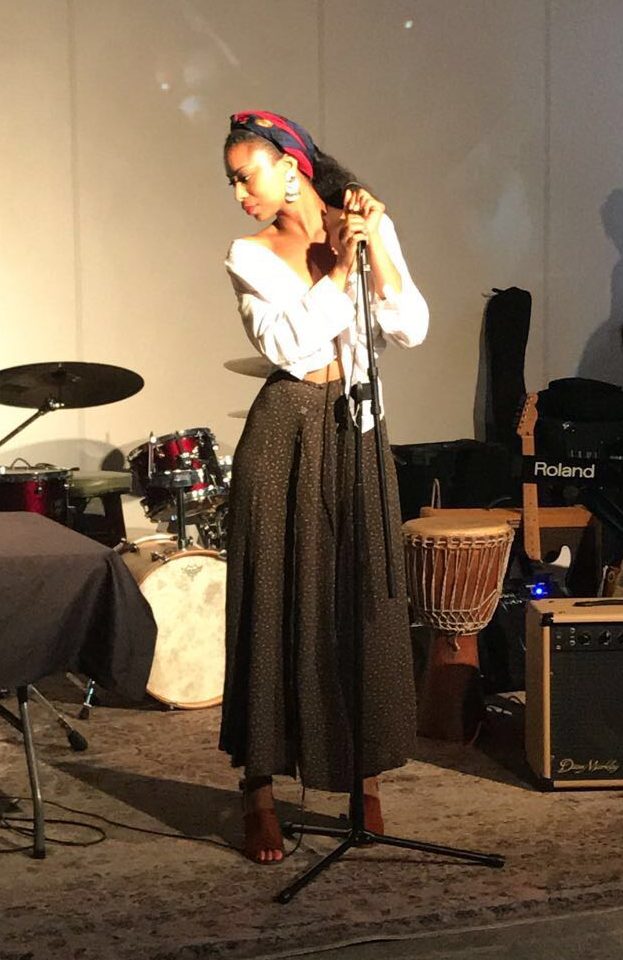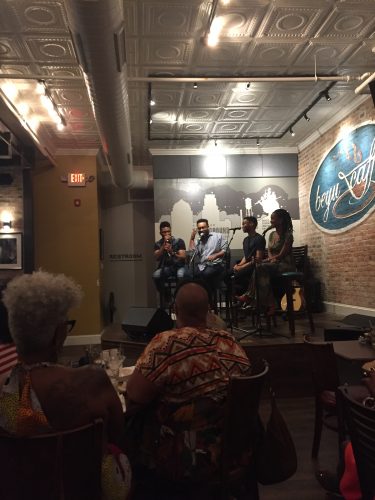When Duke students think of “off campus”, we think of Harris Teeters, Shooters, and Devines. We think of Heavenly Buffalos, Cosmics, and late night Cook Out milkshakes. But those are really just points on a map that happen to be close to campus. What is “Durham,” besides the city that Duke happens to be in?
If you asked me this question during the school year, I wouldn’t have had an answer for you. I’d been off campus approximately four times, and couldn’t even tell you anything about the town itself except for what others before me had said about it. Confession: I hadn’t even been to Harris Teeters or Cosmics before, and only had experienced the wonders of Heavenly Buffalos and Cook Out once each.

As I consider how to answer, “What is Durham?” almost three weeks into my DukeEngage, I struggle to find the right words–for the opposite reason I previously did, simply because there is so much to say. Durham is a city powered by music, supported by entrepreneurs, and brought together by an inspiring sense of support that pumps through the town. It is a city of dreamers, eager to make a name for themselves while simultaneously bringing their beloved community up with them. But it is also a city that’s poverty rate has increased from 15% in 2000 to 19.2% in 2015, a city with pockets divided by race and struggling to survive with the rise in success it so proudly boasts. And though I understand a mere three weeks is not nearly enough to say that I “know” Durham, I have come to see more of the city that not enough Duke students do. A crucial part of the population lies hidden from the student eye, and they are just as important to Durham as those who live and thrive downtown.
I currently work as an intern for the Office of Economic and Workforce Development, and have been helping to organize the Durham YouthWork Internship Program, a program placing about 180 youth ages 14-24 in over 75 worksites all over Durham. While much of the work we do involves filing paperwork and organizing spreadsheets, I’ve gotten just a glimpse into the lives of our applicants. Most have a family household salary nearly one seventh of the average Duke student. Many rely upon Medicaid and other similar programs, currently heavily contested all over the country. The situations they face on the day to day basis are likely unimaginable and vastly different from the university students just a few miles away, yet they often have the same interests and yearning to do more for themselves.

Inspired by this realization of just how wrong my impressions of Durham were during the school year, my roommate Michelle and I often try to go out into the city to explore. We’ve been to live music at the top of the Durham Hotel, amazed by the treasure of a museum in 21c, and listened to concerts in Pinhook. Interestingly, the majority of these events were filled with the white families and university students. But Durham’s population is only 50% white, so where were the rest of its citizens? Nearly 40% of the population is African American, but I never could have guessed by looking at the stereotypical “off campus” places we went.
However, when we went to Open Mic night at Pinhook, Durm Talks at Beyu Caffe, and Third Friday Durham at the Shed, we finally began to see the rest of this hidden population. In each of these events we were two of very few audience members who were not African American, and were fortunate enough to sneak into a space that felt hidden from the Duke student view. At these events that we were able to listen to the African American community speak about the New Durham, the trials they often face, the incredible sense of community and passion they share. We got to ask them about the divide between Duke and Durham, as well as the upcoming mayoral race. Though a minority myself, being in these spaces opened my eyes to a whole new world of what other minorities must endure, care about, and want to change.
These three short weeks are just the beginning of my time here, but they have already taught me more about the Durham community than I ever knew during the school year. Above all else, they have taught me how valuable it is to understand the city I now call home.
